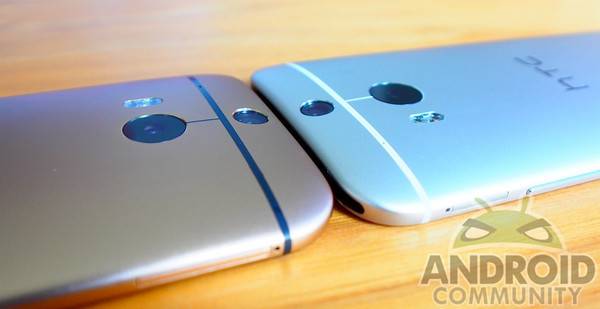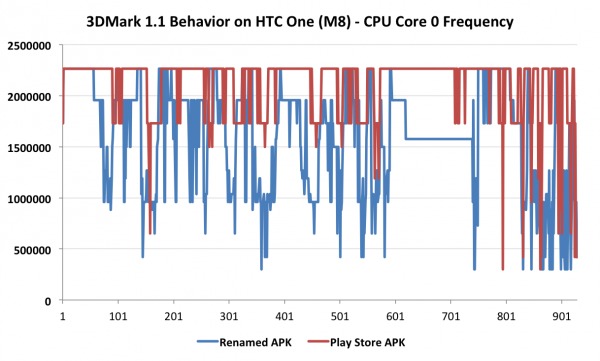
HTC has openly admitted tweaking hardware performance to affect benchmarks, and now it’s starting to pay the price. Futuremark, creators of the popular 3Dmark graphics and CPU benchmarking tool, has officially placed the HTC One M8 at the bottom of its list, below 1000 other devices.
Benchmark cheating became an issue last year when Samsung was discovered to be selectively boosting its hardware when benchmark app are run. The scandal led to the discovery of other manufacturers employing the same tactic, as well as the creation of anti-cheating tools and more stringent benchmarking rules. Though the topic has somewhat died down recently, and Samsung was reported to already be playing fair, it came up once again when the new HTC One M8 was announced.
Rather than denying the accusation as Samsung did, HTC openly admitted to the crime. But more surprising is the fact that HTC doesn’t believe it’s a crime at all. It defends its performance modifications by claiming that the HTC One M8 has, or will have, a High Performance Mode in the developer settings that squeezes out every last bit of juice from the device. It uses this mode when benchmark tests are run because, according to HTC, these tests are meant to determine the maximum performance of the device. The chart below shows how the HTC One M8 performs when running the stock 3DMark app from Google Play Store versus an equivalent but renamed APK.

Futuremark couldn’t disagree more. The company behind one of the most popular graphics benchmark suites says that these tools are meant to gauge real-world performance and not maximum performance. The HTC One M8 violates Futuremark’s rules that no device should detect a benchmark app and modify its performance based on that because it would otherwise be impossible to measure how a device will perform under normal circumstances. This latest incident may become a springboard for debate on whether benchmarks do or should test for real-world conditions or for theoretical capacity. So far, other benchmarking sites, like AnTuTu and GFXbench, have been silent on which point of view they agree with.
SOURCE: Futuremark










While both have a valid reason, kind of tricky to say what my personal verdict would be.
I’ll just be neutral to this as I would still recommend and endorse the M8.
Seems to me that based on HTC’s reasoning, they have every right to do this.
Somebody’s going to get fired for that one. :/
Well, it depends on if this high performance mode is available to the user even without modifying the firmware.
“Futuremark…says that these tools are meant to gauge real-world performance and not maximum performance.”
While I disagree with that statement, I still think it is shady to bury a “high performance mode” in a way that the average consumer won’t know about it.
Calling all htc fan boys. You were all over samsung for this.
It’s like sports people who are using epo.
But if everyone is doing it , who is the winner?
The one who comes first and doesn’t die ?
The old ONE can be oc to 2ghz. But who the fu.. wants to hold a 85c hot phone ?!?. A lithium battery can only take 60c. So they can stick that high performance up in there big butt.
It’s still an awesome phone.
Its a known fact Samsung do the same thing so I don’t know why they haven’t been booted..